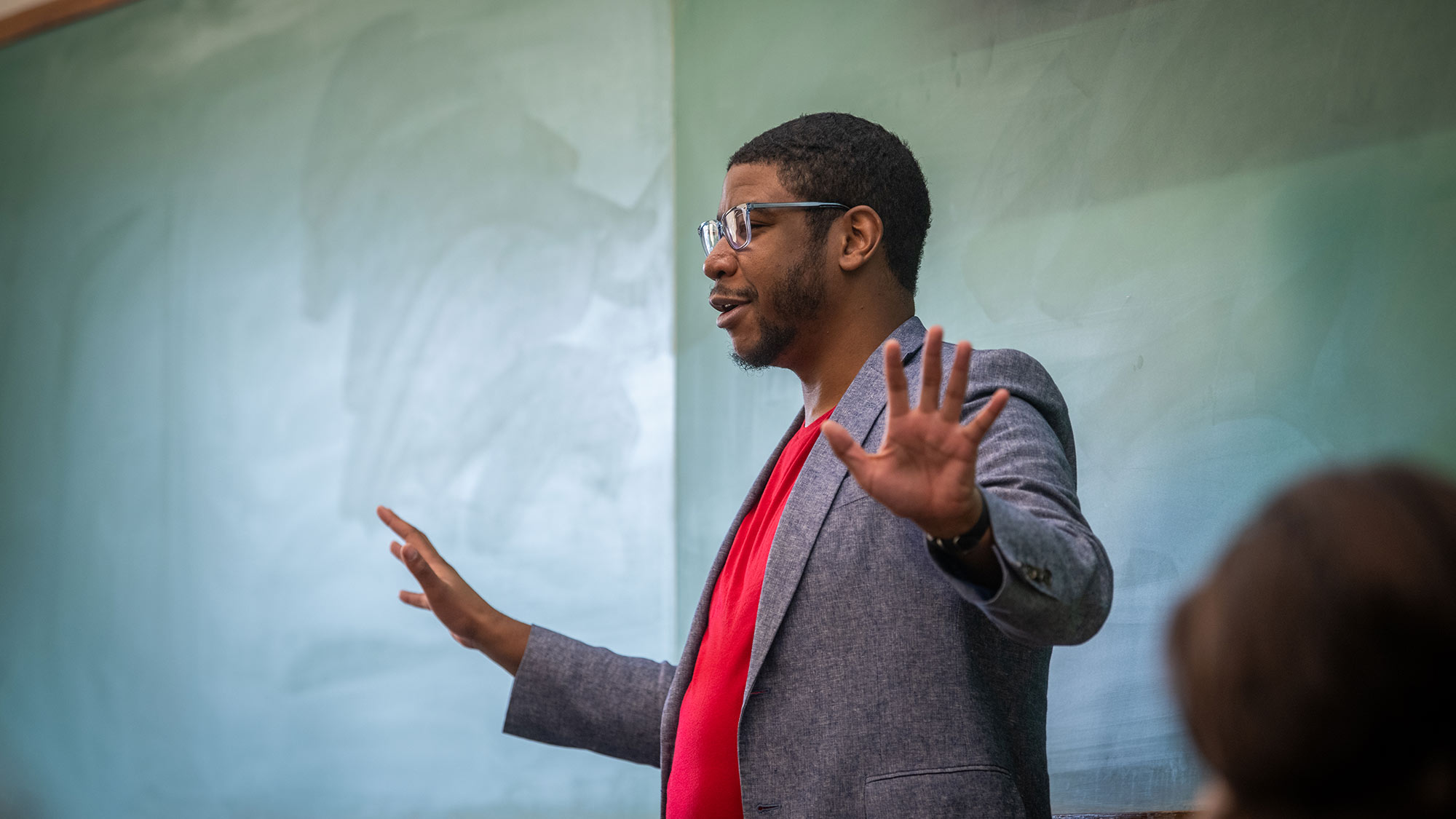As Clark’s resident Shakespeare scholar, English Professor Justin Shaw helps his students perceive why the Bard continues to move audiences to tears, to laughter, to deeper understandings of human motivation—and also why his words still matter since he last put quill pen to paper in 1610. In his research, he unearths prescient lessons about contemporary political tumult, social struggles, and class conflicts embedded in stage pieces written 400 years ago.

In search of the inclusive Shakespeare
“I see real-life people’s situations reflected in Shakespeare,” Shaw says. The playwright is not the be-all and end-all of literature studies, but “he provides a helpful lens through which we can read the world.”
Shaw’s research interests lie in how Early Modern/Renaissance dramatists and poets use “the language of melancholy” in areas of race or otherness.
“It’s not just feeling down or anxious,” he explains. “It’s power versus powerlessness. It’s the feeling of living in the world as a person who is queer, or who is ‘othered’ in some way, or, in different points in history, as a woman. It’s the feeling of living in the U.S. right now, especially in certain states, where there is anxiety about moving through life. It’s being Black in a world where you don’t know how a police encounter will end for you.”
Some characters in Shakespeare are trying to exist and thrive in an oppressive world. “Othello is a respectable Black man who just wants a seat at the table,” Shaw says, “while Aaron the Moor in Titus Andronicus wants to destroy the table.” In The Merchant of Venice, Shylock is “the other” because he is a Jew.
Shaw is a co-editor of the 2024 book Inclusive Shakespeares: Identity, Pedagogy, Performance, a collection of essays on making Shakespeare studies more inclusive for students, teachers, performers, and audiences who have occupied a historically marginalized position in relation to his poetry and plays.

